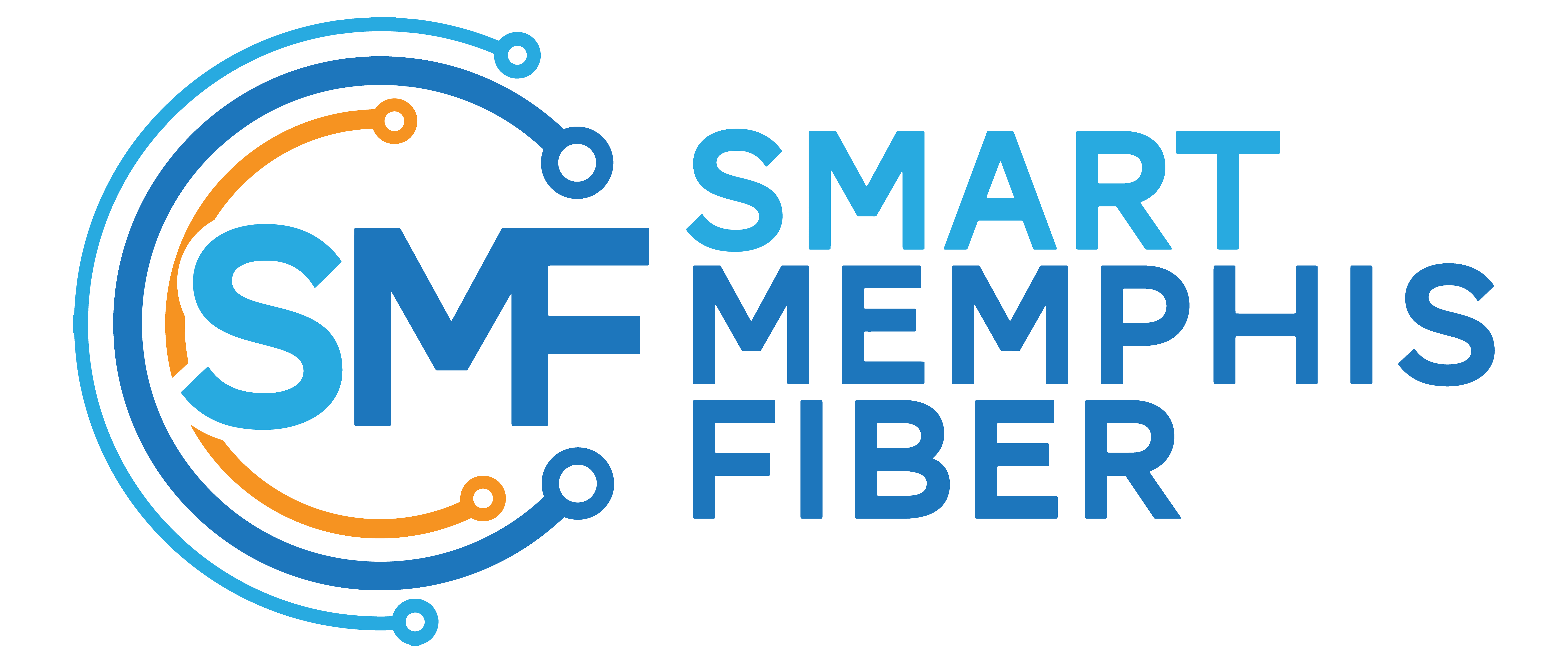In today’s digital age, high-speed broadband is as essential as water, gas, and electricity. It is vital for the modern workforce to upskill, work remotely, and pursue entrepreneurial ventures.
We are building Memphis’ first city-wide fiber network, a major step toward transforming the city into the nation’s most digitally equitable large city.

Our current network has a very limited amount of fiber in our city core, and it’s mostly copper coaxial cable. It was build in the 1980s to offer cable TV. It does not offer the speed of fiber for data upload/download and is aging.
Pastor Ricky Floyd leads the Pursuit of God Church in Frayser. His congregation recently bought the strip mall across the street from the church. It houses the church’s Regroup Boutique and HiFlo Podcasting Studio. Church members are also building a barber shop, nail salon, and internet cafe in the plaza. Floyd says poor internet causes problems running the congregation’s current businesses. He’s praying better internet will be available when additional companies open.
Eunice Poole is one of many residents who come to Frayser Branch Library. She says her home internet is unreliable and is at the branch many days because it’s better than home, but one librarian says that even the service there can sometimes be a challenge.
Parker Hays is a former veteran Memphis News Photographer who used to have to transfer video files back to the company he worked for on a daily basis. Hays talks about the internet challenges he faced on a routine basis, while trying to do his job.
Tanja Mitchell owns Mitchell Consulting in Uptown, a community where she lives and works. Mitchell says her internet is unreliable. She is concerned it could cause her to lose business if service is not improved.
Ashley Jones is the Community Development Real Estate Manager for Habitat For Humanity. Jones says residents living in several of the Habitat communities recently built have difficulty receiving reliable internet. Some residents have to take measures in one Binghampton neighborhood, often found only in rural areas.
The Smart Memphis Fiber project broke ground in April 2024. Check out how crews are using micro trenching to install the fiber line around the city. The process allows them to bury the line without tearing up the whole street.


Stats
Memphis Ranks 90th in Average Download Speed
Broadband speeds, the five lowest ranking cities hovers around the 100 Mbps mark, aside from Memphis, which came in at 49.01 Mbps. There’s a large disparity between the slowest cities and the fastest cities, with Frisco, Texas clocking in the fastest median download speed of 260.31 Mbps

Stats
Memphis Ranks 99th Out of 100
Latency (measured in milliseconds) is a measure of how quickly a device gets a response after a request has been sent. Low latency means the server is responding quickly, whereas high latency means the server is responding slowly. When measuring latency, the lower the number, the better.
Network performance metrics based on the most recent quarter of Speedtest Intelligence® data for the 100 largest cities across the U.S (by population counts, according to Census Bureau data).

Why is The Smart Memphis Fiber Initiative Important?
Smart Memphis Fiber is more than just infrastructure; it invests in a more equitable, digitally literate, and economically vibrant Memphis. Access to high-speed internet is fundamental to water, gas, and electricity and is considered the fourth utility. This initiative echoes the City’s commitment to embracing technology for the betterment of its residents and future generations. This investment promises to enhance service delivery to citizens.
It incentivizes investment in Memphis’ broadband infrastructure by existing and new broadband network providers by waiving the right-of-way fees. This will stimulate future investment in fiber broadband in Memphis.
Telecommunications Companies that desire to build a fiber optics system that meets the qualifications below are eligible to receive an exemption from City right-of-way access fees and a reduction in permitting fees for up to 20 years.
Benefits
Expected Outcomes
%
60% citywide and 60% low-income premises broadband penetration will:
Reach every corner of the city
Provide high-speed, quality broadband where it doesn’t yet exist
Improve digital access in long under-served Memphis communities while enabling us to realize our Smart Memphis plan
Double usage amongst all households
Triple broadband usage amongst low-income households
Smart Memphis Fiber will bridge the digital divide, providing high-speed broadband where it’s needed most. This strategic investment aligns with the City’s commitment to promoting digital equity. Investing in fiber infrastructure expansion is a fundamental step in nurturing small businesses, nonprofits, and remote work options, all of which have the potential to contribute significantly to job growth. It’s an investment in the infrastructure and skills needed to thrive in the digital economy of the 21st century.
